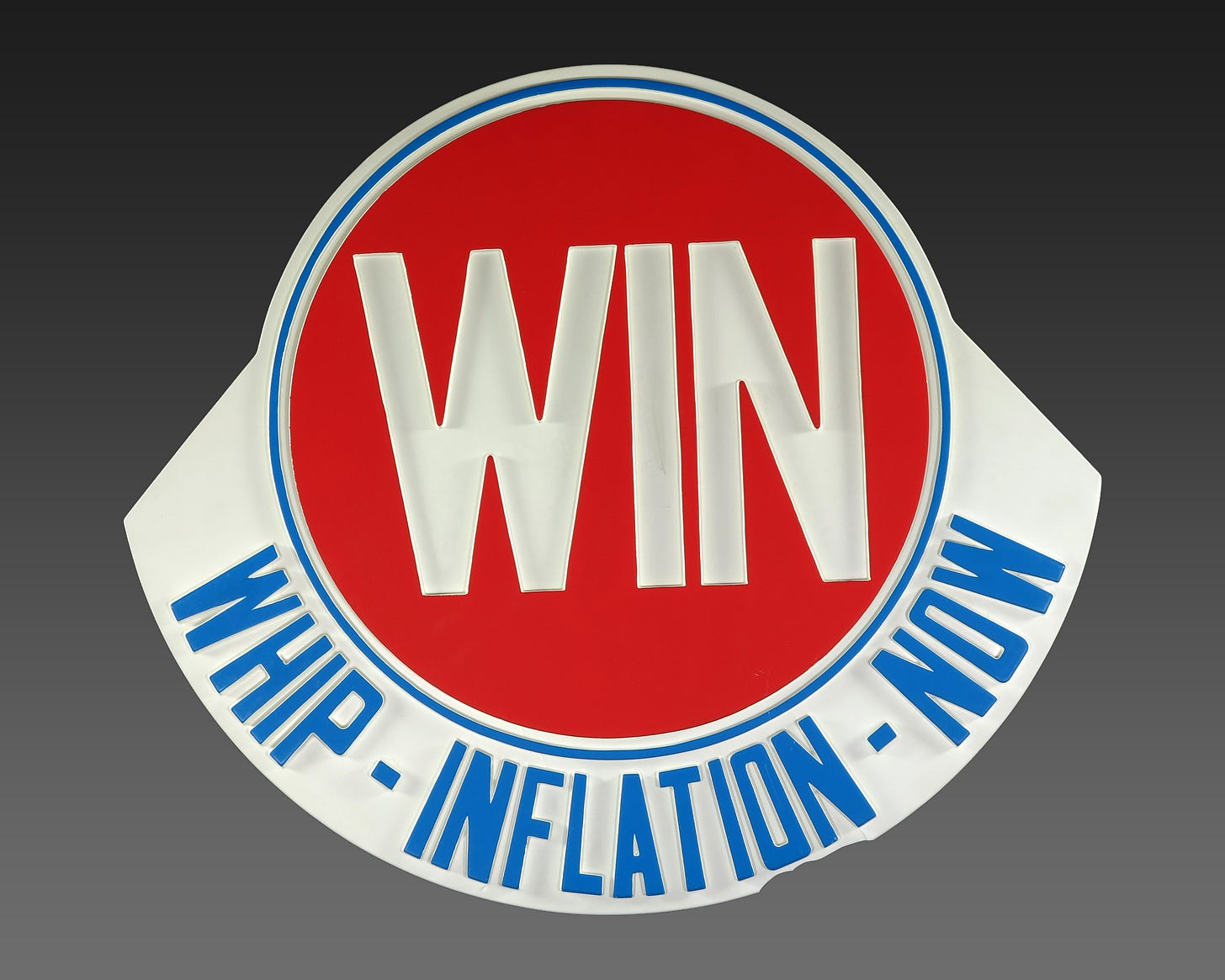Inflation: It's Getting Better, Actually
Trust the process? Plus an alternate theory for why conservative elites missed Trumpism in the before times.
Tonight is TNB! Come hang out with me on the livestream where I’ll be joined by Will Saletan, Joe Perticone, and special guest A.B. Stoddard.
Thursday night; 8pm in the east; only for members of Bulwark+. Details here.
1. Whip Inflation Now
Care for some good news? Try this on for size:
Also: The Fed is signaling that it’s going to keep beating inflation like a rented mule:
Last year, we raised the target for the federal funds rate to between 4.25 percent and 4.5 percent. That was a significant move, and a very fast one, given that we started the year at about 0 percent. I expect that we will raise rates a few more times this year, though, to my mind, the days of us raising them 75 basis points at a time have surely passed. In my view, hikes of 25 basis points will be appropriate going forward.
Like I said: Good news.
The bad news is that the general public always complains about something. While unemployment was low and the economy was growing, all anyone could talk about was inflation.
So the Fed started raising rates—and people shifted to complaining about interest rates.
And now that inflation is down, growth will slow and unemployment is likely to tick up. So people will complain about that.1
All the American public wants is cheap money, zero unemployment, economic expansion, and 2 percent inflation for forever. Give them that and they’ll be happy.
Maybe? I suspect they’d find something else to bitch about. Probably gas prices, because there was always time in the past when gas was cheaper than it is now.
What we are hunting for is the legendary soft landing: A way to come off of 12 years of unchecked expansion, a decade of ZIRP, the sugar-high of large-scale stimulus (and tax cuts!), and the massive economic shock of a global pandemic—with only mild discomfort and not painful recession.
Soft landings are the rarest bird in all of macroeconomics. They’re notoriously hard to engineer. And maybe this one will spiral out of control and tip into recession, too.
But so far, the indicators are encouraging.
2. Middle-Out
Charlie mentioned this interesting back-and-forth between Bret Stephens and my old friend David Brooks about how they became politically homeless. It’s worth reading. They’re both very smart.
But I was struck by how much of their analysis of what happened to conservatism / the Republican party is based on the movement of the elites. They talk about misunderstanding what people like Laura Ingraham wanted and the evolution of Fox News and the discrediting of the establishment.
And maybe that’s what happened. Maybe the elites changed and then the party and the movement changed.
I have an alternate theory.





